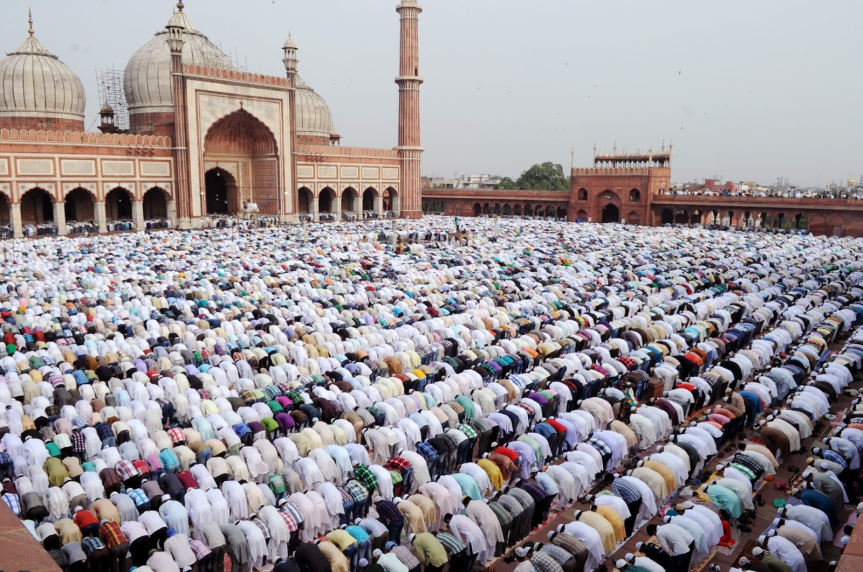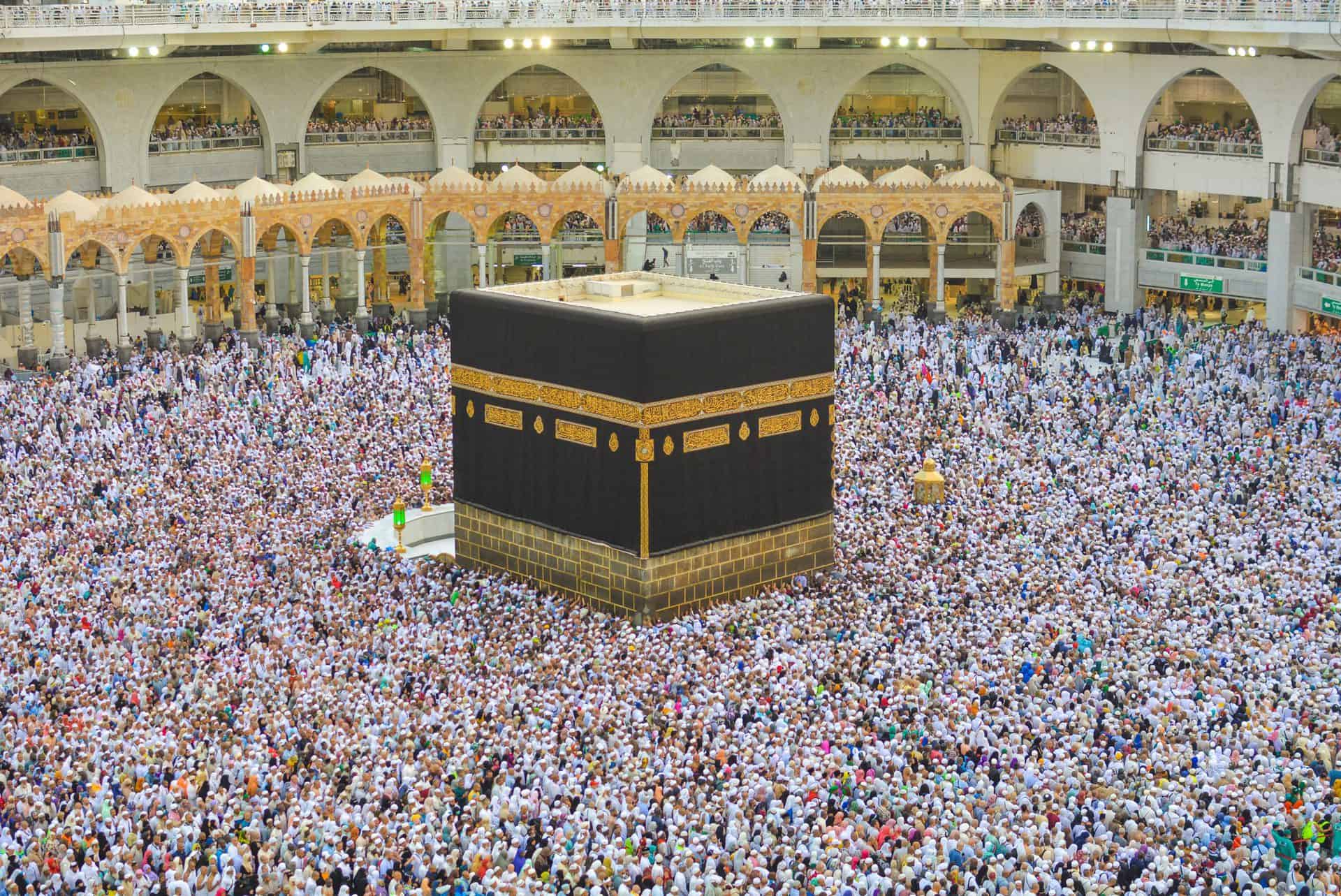5 Pillars of Islam
The foundation of the Islamic faith is built upon five key practices or pillars as they are more commonly known. Muslims worldwide must practice the rituals set within each pillar throughout their lifetime.
The five pillars of Islam are Shahada, Salat, Zakat, Sawm, and Hajj.
Although the five pillars don’t have a set precedence each pillar has its own appointed time, place, and guidelines that need to be adhered – be it daily (Salat), annually (Zakat, Ramadan), or once in a lifetime (Hajj). The Shahada, however, is the most important pillar as it is the basis upon which the other four are built, making it a prerequisite to accepting Islam and the difference between being a Muslim and a non-Muslim.
1. The Shahada
The first pillar of Islam is Shahada, or the declaration of faith. It is the most fundamental pillar of Islam, and it affirms that there is no god but Allahﷻ and that Muhammadﷺ is His messenger. This declaration is a testament to one’s faith and is necessary for anyone who wishes to become a Muslim. The sacred Islamic oath has to be read, understood, and accepted wholeheartedly by anyone wanting to accept Islam.
أشهدُ أنْ لا إلهَ إلاَّ اللهُ وأشهدُ أنَّ محمّداً رسولُ الله
Ashadu An La Ilaha Illa Illa-Ilah, Wa Ashadu Anna Muhammadan Rasul Ullah.
Translation: There is no God but Allahﷻ and Muhammadﷺ is the Messenger of Allahﷻ


2. Salat
The second pillar of Islam is Salat, or prayer. Muslims are required to perform five daily prayers, which serve as a way to communicate with Allah and seek His guidance and blessings. The prayers are performed at specific times throughout the day and involve reciting verses from the Quran and performing physical movements such as standing, bowing, and prostrating.
3. Zakat
The third pillar of Islam is Zakat, or charity. Muslims must give a portion of their wealth to those in need, including the poor, the needy, and those in debt. Giving to charity is seen as a way to purify one’s wealth and fulfill one’s obligation to help those less fortunate.


4. Sawm
The fourth pillar of Islam is Sawm, or fasting. Muslims are required to fast from dawn until sunset during the month of Ramadan. Fasting serves as a way to purify the soul, practice self-discipline, and gain a greater understanding of the needs of others and those less fortunate
5. Hajj
The fifth pillar of Islam is Hajj or pilgrimage. Muslims are required to make a pilgrimage to the holy city of Mecca at least once in their lifetime if they are physically and financially able to do so. The pilgrimage involves performing a series of rituals, including circling the Kaaba, a cube-shaped building in the center of the Grand Mosque in Mecca, and standing on the plain of Arafat to seek Allah’s forgiveness and mercy.

Help and Support Your Masjid
Your contribution will help us maintain and develop our wide range of services. Prophet Muhammad ﷺ said: “Allah said: ‘Spend, O son of Adam, and I shall spend on you.’”
